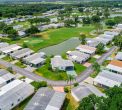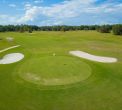Click Here To See Legacy Communities!

Legacy Communities is dedicated to creating and nurturing premium, active lifestyle communities for our residents. We understand that choosing one of our communities is a significant lifestyle decision and deeply respect this choice. Our residents enjoy affordable, carefree, and low-maintenance homes that offer privacy within a secure and supportive community. Upholding these values is a priority, reflected in our management practices and strong emphasis on customer service. Our locations feature stunning views, exceptional amenities, and abundant opportunities for relaxation and socialization through engaging on-site activities and events. Meticulous groundskeepers and maintenance staff ensure our properties remain impeccably beautiful. Many of our long-term residents delight in exploring arts, culture, fine dining, upscale shopping, premium golf courses, and numerous outdoor recreational activities. This truly embodies the essence of an active lifestyle at Legacy Communities.






























